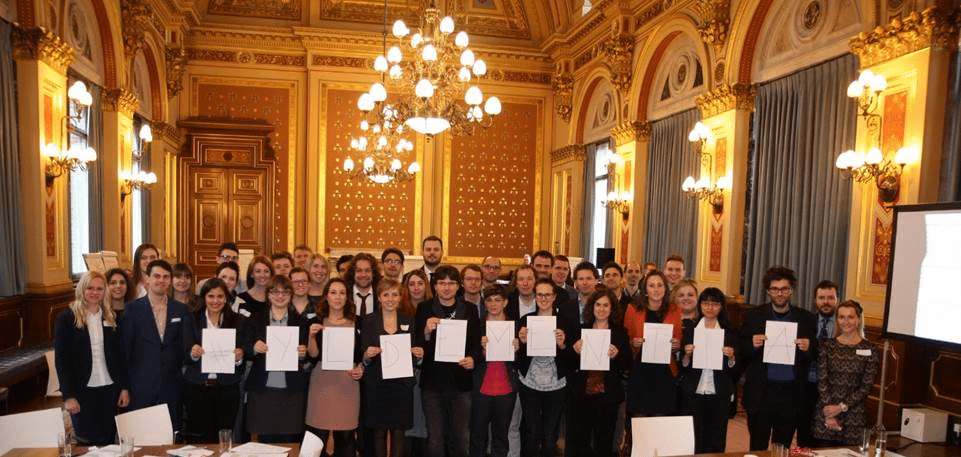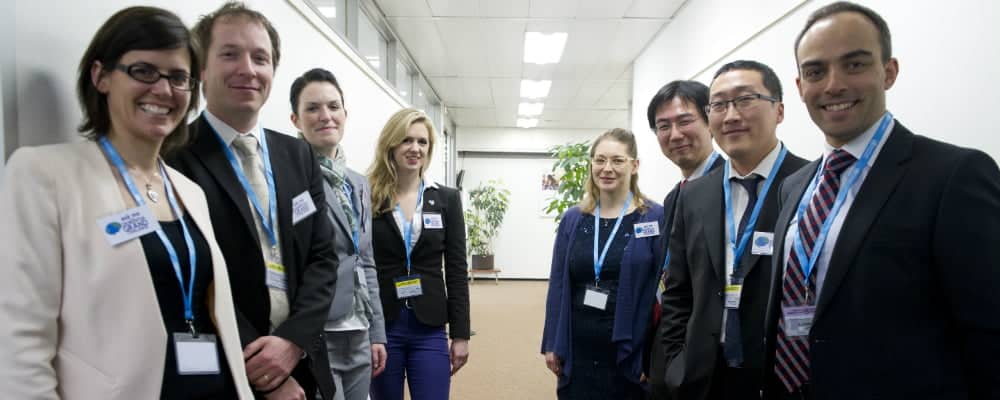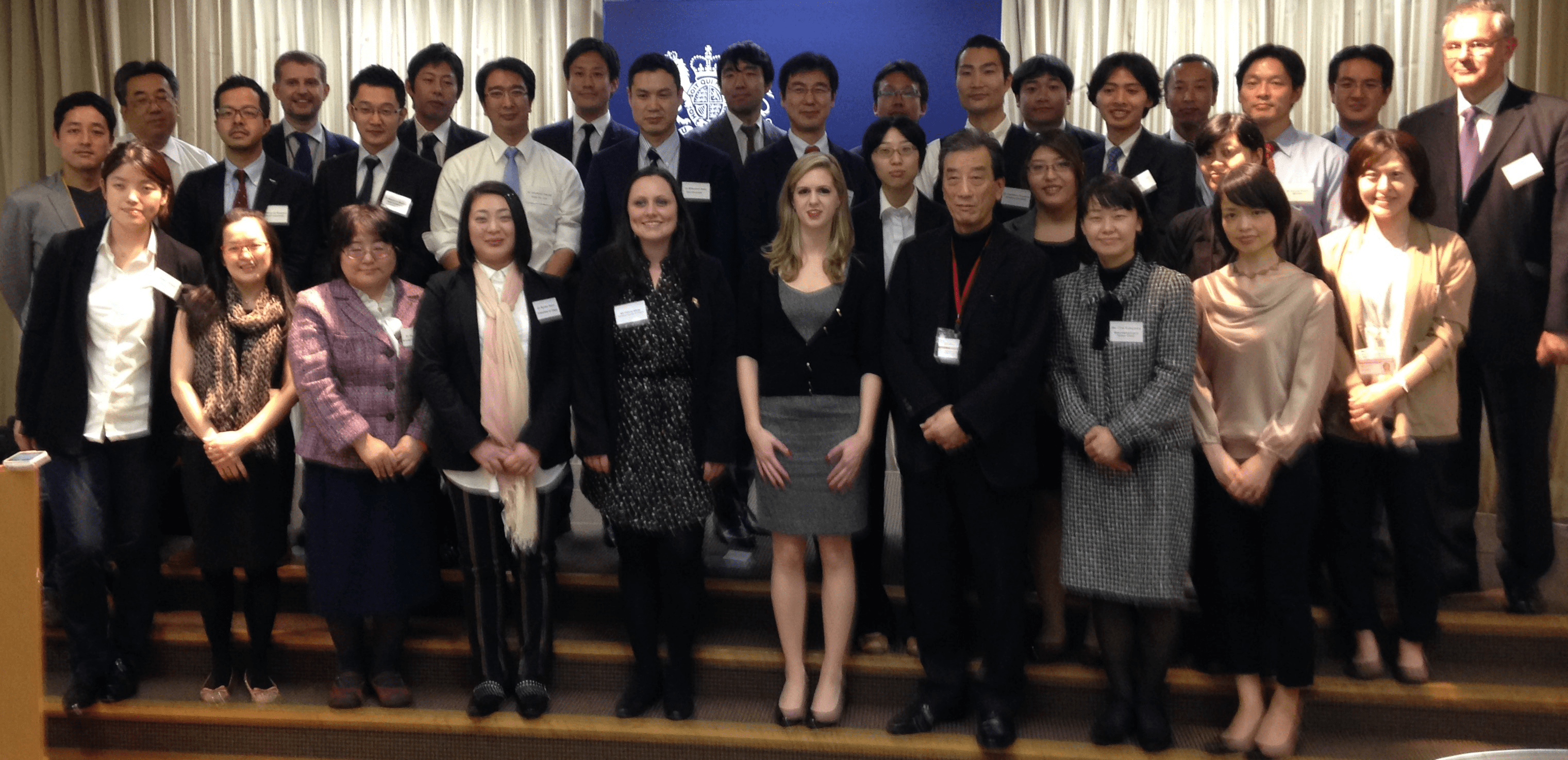World Young Leaders in Dementia (WYLD), a network for emerging leaders in the field, grew out of the legacy meetings that followed the 2013 G8 (now G7) dementia summit: Together with JPND, the UK Science & Innovation Network identified young leaders to convene to draft a set of proposals and present them at the WHO’s First Ministerial Conference on Global Action Against Dementia in March 2015. This process sparked a number of new research collaborations and indeed the creation of the WYLD network itself.
Now with more than 130 members across six continents, WYLD is mobilising to drive forward creative new solutions for people with dementia, their caregivers, and their communities. JPND spoke with Laura Booi, William Hu, Anja Leist, Kristine Newman, and Clare Walton from the WYLD Steering Committee to learn more about what the group wants to accomplish and how they plan to do it.
Accelerating solutions to tackle dementia
To help lay the groundwork for the future of dementia care, cure, research, and advocacy, the members of WYLD are working to foster new, interdisciplinary collaborations among the next generation of leaders. “WYLD members come from the broad fields of basic, clinical, health, social and care,” said Anja Leist, a research associate at the PEARL Institute for Research on Socio-Economic Inequality at the University of Luxembourg. “Most members, however, are not only researchers,” added Kristine Newman, an assistant professor at the Daphne Cockwell School of Nursing at Ryerson University. “They’re also advocates and, in many cases, care providers.”
The young leaders aim to identify ethical and daring models of inquiry and then translate them across disciplinary and national borders. Their end goal: to advance new dementia strategies that incorporate the latest innovations in technology and methods and that are global in scope. “We want to develop compelling strategies that meet the needs of a rapidly changing world,” said William Hu, Assistant Professor of Neurology and Director of the Neurodegenerative Biomarkers Laboratory at Emory University. “Dementia is a global challenge and it will require global solutions.” Hu himself has promoted scientific exchange by establishing new collaborations with young clinicians and scientists from Bulgaria, Italy, the Netherlands, Taiwan, and the U.S.

European young leaders meeting, London, February 2015
A new take from the ‘Think different’ generation
According to the young leaders, many of whom qualify as so-called millennials (those born roughly between the years 1982-2000), theirs is a generation marked by a rejection of conformity and a confidence in thinking outside the box. It’s this ethos that the young leaders say allows them to bring creative brainstorming, fresh perspectives, and novel solutions to the dementia field. In short: this is a group of young people who aren’t afraid to put forward challenging new ideas.

First WHO Ministerial Conference on Global Action Against Dementia, Geneva, March 2015
As the first generation of dementia researchers who grew up with home computers, the young leaders also bring technological fluency to the field. One advantage of being a digital native, they say, is that they’re able to utilise, uncover, and recommend the most advanced tools, trends, and technologies, such as content management systems and social media, for dementia-related initiatives. For this reason, WYLD incorporates a technology and dementia element into each international workshop.
Ready, set, assume the mantle
WYLD’s ongoing activities include regular meetings at international dementia conferences and participation in the World Dementia Council, with one young leader contributing to each of the five Global Teams (Research, Open Science & Data, Care, Integrated Development, Risk Reduction, and Finance). In order to develop into a truly international network, the young leaders are taking steps to implement their governance structures, formalise their communication channels and create a membership directory to facilitate connecting from both within and outside of the network. “We want to rapidly ramp up our collaborations,” said Laura Booi, Doctoral Candidate in Gerontology at Simon Fraser University in Vancouver, Canada. “That’s how we believe that we can most quickly make progress toward a world that cares for and values people with dementia.”

Japanese young leaders meeting, Tokyo, November 2014
